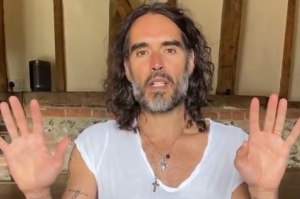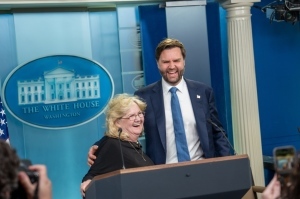Five Tools Saddleback Uses to Develop Spiritual Maturity
In 1990 Saddleback was already one of the larger churches in America. On our 10th anniversary I stood up and said, "What's next?" In our first 10 years we became one of the largest churches. But my goal now, our goal, is that we become one of the most spiritually mature churches in the nation. Spiritual maturity is not automatic. It's got to be cultivated. This is your role and your responsibility as a leader in your church.
You might be saying, Rick, that's a pretty audacious goal! No, it's not. It ought to be the goal of every church. Every church should want its people to be as much like Christ as possible. We want them to be spiritually deep.
When you go fishing, do you want quality or quantity? I want both! I want to catch as many fish as I can, and I want to get them as big as I can. I don't want the little fish. I want big fish. I don't want minnows. We want Saddleback to grow in quality and quantity. There's no contradiction there.
Just as it takes certain tools to cultivate a garden so it will grow, there are certain practical tools that you need to cultivate spiritual growth in the lives of your members. It's not automatic. It doesn't just happen. You have to help them grow.
In this article I want us to look at five tools that we use to cultivate spiritual growth. Really, if you want to know the secret behind Saddleback Church, it's these five things. These are five very practical tools that we have used to develop the maturity level of people in our church.
1. Commitment cards
The commitment cards help our people respond to what we're teaching in the weekend message. We use commitment cards all the time. We'll even design special cards for Mother's Day, Easter, Christmas, and other key days during the year.
This is one of the most overlooked tools that pastors have at their disposal – just giving people an opportunity to respond. A lot of people get right up to that point but never cross the line. We need to teach people what to do and then ask them to do it. You must ask people for their commitment or you're not going to get it.
2. Classes based on the purposes
We have four core classes at Saddleback (101, 201, 301, and 401) – each of them focuses on one of the purposes of the church: membership, maturity, ministry, and missions. Through these four-hour classes, we try to help our congregation live out these purposes in their everyday lives. These classes are the building blocks of Saddleback. They have consistently produced mature believers who walk the walk, talk the talk, live the life, and sacrificially give.
Most Christians know far more than they're putting into practice. If you have application-focused classes centered on the purposes, that'll change. Your people will start to learn how to actually live out the biblical purposes in their lives. I cannot over emphasize the importance of setting up a regular class system like this. Once the system is set up, you just improve it every year. People say, "What are you going to do next year?" Same thing that we did last year. We'll just do it better. You can find the classes that we use on Pastors.com.
3. Covenants
Covenants are the most important part of our classes. We have a membership covenant, a maturity covenant, a ministry covenant, and a missions covenant. We have our members sign the covenants at the end of each of our classes. Why?
- We become whatever we are committed to.
- Every church is defined by what it's committed to.
- People want to be committed to something that gives them significance.
- If your church doesn't ask for your people's commitment, other people will.
- The greater the commitment you ask for, the greater response you'll get.
4. Small groups
Your church members can't grow spiritually on their own. We all need other people to help us grow. At Saddleback we use small groups, built around the same core New Testament purposes that our church is, to help our members develop the kind of relationships they need to grow. In these groups they can practice all of the "one anothers" of Scripture (pray for one another, love one another, etc.). It's a central part of our church's spiritual growth plan. And by making sure that these groups center on the biblical purposes, we help our members worship more fully, build meaningful relationships, develop the character of Christ, discover their shape for ministry, and share their faith with lost friends.
5. Campaigns
We also use spiritual growth campaigns to boost the growth of our people. A spiritual growth campaign is an intensive, extended, all-church emphasis involving every age group that focuses on some particular aspect of spiritual growth. Campaigns like 50 Days of Faith, 40 Days of Purpose, and 40 Days of Community have paid eternal dividends in the spiritual growth of our church.
In the last 27 years at Saddleback, nothing – I mean nothing – has produced spiritual growth in our people deeper and faster than campaigns. Through 40 Days of Purpose alone (in just 40 days):
- 671 new believers came to Christ and were baptized
- 1,200 new members took C.L.A.S.S. 101 and joined the church (in a 40-day period)
worship attendance increased by 2,000
- 1,600 new small groups were started
- 2,200 more people started serving in ministry
- 3,700 people committed to a world missions project
It was truly a transformative experience for our church. All of our campaigns have been.
Each of these five tools has been instrumental to the spiritual depth of Saddleback Church. They're all fully transferable as well. Any church can use them. I encourage you to give them a try.
_______________________________________________
Rick Warren is the founding pastor of Saddleback Church in Lake Forest, Calif., one of America's largest and best-known churches. In addition, Rick is author of the New York Times bestseller The Purpose-Driven Life and The Purpose-Driven Church, which was named one of the 100 Christian books that changed the 20th Century. He is also founder of Pastors.com, a global Internet community for ministers. Copyright 2005 Pastors.com, Inc. Used with permission. All rights reserved.





























